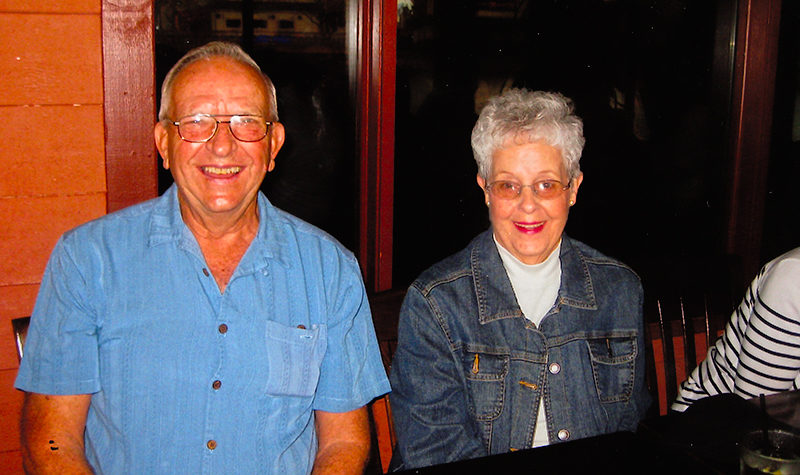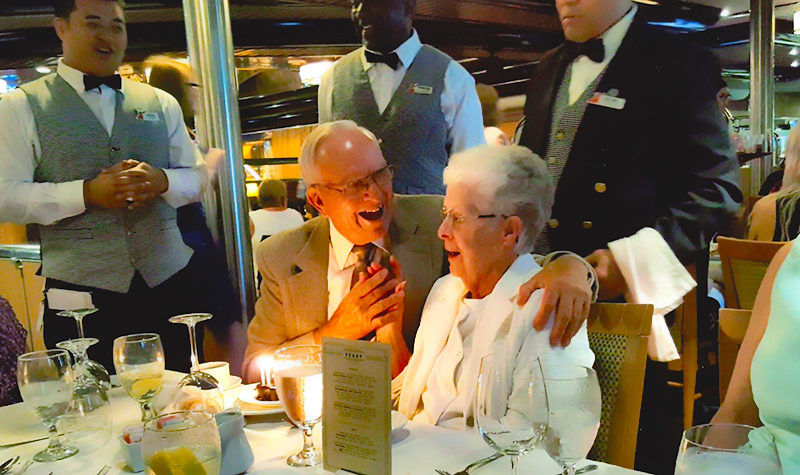During their 60-year marriage, John and Doris Hughes spent a lot of time caring for others. Dedicated volunteers, the couple delivered bread to people in need, performed mission work and simply sought out opportunities to help.
“If you look around, there’s always somebody you can reach out and touch,” John says. “That’s been a lifestyle for us.”
So when Doris was diagnosed with stage 4 lung cancer in January 2017, it was the Hughes’ turn to seek help navigating this new chapter of their life together. Specifically, the couple sought assistance from the community-based palliative care program offered through Tidelands Health.
The goal of the program, launched in mid-2017, is to help improve the quality of life among patients with chronic and life-threatening illnesses. Members of the health system’s palliative care team help explain the patient’s medical condition, coordinate care, assist with making medical decisions and address other needs.
“I had no idea how to approach (the diagnosis),” John says. “I called my daughter in Pennsylvania, and she came down and stayed with us. She called (palliative care) and got things in motion,” he says.
The assistance the Hughes family received from the health system’s palliative care program allowed Doris to receive care at the couple’s Myrtle Beach home and John to benefit from support even after his wife’s passing.

John Hughes and his wife Doris.
Working with the couple were Shawneequa Sumpter-Gibson and Dio Godbold, palliative care coordinators with Tidelands Health.
No matter how big or small an issue was, John says the palliative care team provided a solution. When a home health company mistakenly charged John’s credit card, the palliative care team intervened. And when Doris needed a wheelchair, the team worked with local organizations and volunteers to arrange for one.
“She (Godbold) delivered the chair right there, at our doctor’s appointment. We didn’t have to do anything special. It was a wonderful little wheelchair. I pushed Doris in it up and down the street to visit her twin sister who lives about a quarter-mile away,” he says. “She sat in the chair and I’d put an umbrella up and off we’d go.”
Having palliative care in place allowed John, 80, to care for Doris at home during her last months.
“When I was 19 and a half, I promised this little gal I would take care of her for better or for worse, and that’s exactly what I intended to do,” he says.
Indeed, helping family members care for a patient is one of the goals of palliative care, Godbold says. In the Hughes’ case, Godbold helped John get Doris to appointments and coordinated pain management and symptoms.
“He was calm and at ease with the process, and they were prepared to transition to hospice when the moment came,” she says. “Having palliative care in place prevented so much trauma for the family.”
Palliative care differs significantly from hospice, a service that is generally only available to terminally ill patients during the last few months of life. Palliative care can begin at any stage after a patient has been diagnosed with a life-threatening or chronic illness such as cancer, Alzheimer’s disease, kidney disease, heart failure and HIV/AIDs, among others.
The goal of palliative care is to help patients and their families manage the physical and emotional aspects of condition. Coordinators can help families cope with financial pressures, legal problems, employment concerns, transportation and housing challenges, among other issues that may arise.
“Palliative care is there to offer support through the whole process,” Godbold says.
Even after a patient’s death, palliative care continues to support caregivers and family members by connecting them with bereavement counseling and periodic check-ins.

Doris passed away in October 2017. In the months before her death, she spent time with her daughter and granddaughter in Pennsylvania, visited with friends in Myrtle Beach and reminisced with John about their myriad travels.
Even though Doris is gone, John is carrying on the couple’s legacy of service. Since his wife’s death, he has started volunteering with the American Red Cross and plans to begin volunteering with a hospice program later this year.
“I had her 60 years. I cry a little every day, but I have hope beyond this life,” John says. “I wouldn’t take nothing for what I experienced with her.”
Enjoy this story? It’s free to republish. Learn more.




